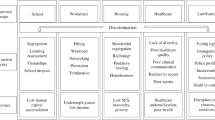Abstract
The case of Dr. Nancy Olivieri, the Hospital for Sick Children, the University of Toronto, and Apotex Inc. vividly illustrates many of the issues central to contemporary health research and the safety of research participants. First, it exemplifies the financial and health stakes in such research. Second, it shows deficits in the ways in which research is governed. Finally, it was and remains relevant not only in Toronto but in communities across Canada and well beyond its borders because, absent appropriate policies, what happened in Toronto could have happened (and could well still happen) elsewhere.
In Part One of this paper, we review the facts of the Olivieri case relevant to the issues we wish to highlight: first, the right of participants in a clinical trial to be informed of a risk that an investigator had identified during the course of the trial and the obligation of the investigator to inform participants (both her own and those of other investigators); and second, the obligation of institutions to protect and promote the well-being of research participants as well as academic freedom and research integrity, the obligations of research sponsors to inform participants, research regulators, and others about unforeseen risks, and the obligations of research regulators to ensure that participants are informed of unforeseen risks and to otherwise protect and promote research integrity. In Part Two, we relate these facts and issues to New Zealand and Australia. We also make detailed recommendations for changes to the various instruments used for the governance of research involving humans in Australasia.
Similar content being viewed by others
References
Thompson J, Baird P, Downie J. The Olivieri Report: The complete text of the report of the independent inquiry commissioned by the Canadian Association of University Teachers. Toronto Lorimer: 2001. [Online] Available:http://www.dal.ca/committeeofinquiry [25.7.05].
College of Physicians and Surgeons of Ontario (CPSO), Complaints Committee. Complaints Committee Decision and Reasons: Dr Nancy Olivieri. 2001. [Online], Available; http://www.caut.ca/en/issues/ academicfreedom/olivieri_cpso.pdf [25.7.05].
University of Toronto. Apotex Gift Funds New Facilities. The Bulletin. 2001 Oct 29; 1. [Online], Available: http://www.newsandevents. utoronto.ca/bulletin/PDF_issues/10-29-01.pdf [25.7.05]
Thompson J, Baird P, Downie J. Supplement to the Report of the Committee of Inquiry on the Case Involving Dr Nancy Olivieri, the Hospital for Sick Children, the University of Toronto, and Apotex Inc. 2002. [Online], Available: http://www.dal.ca/committeeofinquiry [25.7.05].
Canadian Association of University Teachers. Defending Medicine: Clinical faculty and academic freedom. 2004 Nov. [Online] Available: http://www.caut.ca/en/issues/academicfreedom/DefendingMedicine. pdf [25.7.05].
Association of University Staff (NZ). Universities starved in Budget [press release]. 2004 May 27.
Soh LHC. How Different Are Universities from Companies? Financial Reporting Perspectives and the Market for Vice-Chancellors [dissertation]. Crawley (WA): University of Western Australia; 2004. [Online], Available:http://www.ecom.uwa.edu.au/_data/page/36742/ dissertation_frontmatter.pdf [25.7.05].
Ministry of Education and Transition Tertiary Education Commission (NZ). Investing in Excellence: The Report of the Performance Based Research Funding Working Group. 2002 December.
Ministry of Research, Science and Technology (NZ). [Online], Available: http://www.morst.govt.nz [25.7.05].
Australian Government. Backing Australia’s Ability: Building our future through science and innovation [Joint Ministerial Announcement]. 2004. [Online], Available. http://backingaus. innovation.gov.au/min_annouce.htm [25.7.05].
Department of Education, Science, and Training (AU). HERDC data cited in Australian Vice Chancellors Committee 2005 Key statistics-research. [Online], Available: http://www.avcc.edu.au/documents/ publications/stats/Research.pdf [25.7.05].
The Health and Disability Commissioner (NZ). Code of Health and Disability Services Consumers’ Rights Regulations 1996. [Online], Available. http://www/hdc.org.nz/index.php [25.7.05].
New Zealand Regulatory Guidelines for Medicines, Volume 3: Interim Good Clinical Research Practice Guideline; 1998 Aug.
Minister of Health (NZ). Operational Standard for Ethics Committees. Wellington: Ministry of Health; 2002. [Online], Available:http:// www.moh.govt.nz/moh.nsf [25.7.05].
Department of Health (NZ). National Application Form for Ethical Approval of a Research Project and Guidelines for Completion of the National Application Form for Ethical Approval of A Research Project (NAFG-2005 v1). [Online], Available. http://www.newhealth.govt.nz/ ethicscommittees/documents/nationalapplicationform.pdf [25.7.05].
Robertson M. Research and Academic Freedom. In: Dawson J, Peart N, editors. The Law of Research: a guide. Dunedin: University of Otago Press; 2003. p. 27–45.
Therapeutic Goods Administration (AU). Human Research Ethics Committees and the Therapeutic Goods Legislation. 2001. [Online], Available. http:/www.tga.gov.au/docs/html/hrec.htm [25.7.05].
Note for Guidance on Good Clinical Practice CPMP/ICH/135/95: Annotated with TGA Comments. Australia. [Online], Available: http:// www.tga.gov.au/docs/html/ich 13595.htm [25.7.05].
National Health and Medical Research Council. National Statement on Ethical Conduct in Research Involving Humans. Canberra (AU); 1999. [Online], Available: http://www.nhmr.gov.au/publications/ humans/contents.htm [25.7.05].
Rogers v. Whitaker (1992), 175 CLR 479.
National Health and Medical Research Council. Research Ethics Handbook: Commentary on the National Statement on Ethical Conduct in Research Involving Humans. Canberra (AU); 2001. p. 284. [Online], Available: http:/www.nhmrc.gov.au/publications/synopses/ e42syn.htm [25.7.05].
National Health and Medical Research Council, Australian Research Council, Australian Vice-Chancellors’ Committee. Review of the National Statement on Ethical Conduct in Research Involving Humans: First consultation draft. 2004 Dec. [Online], Available: http://www. nhmrc.gov.au/ethics/human/ahec/projects/statement.htm [25.7.05].
Author information
Authors and Affiliations
Rights and permissions
About this article
Cite this article
Downie, J., Thompson, J., Baird, P. et al. The olivieri case: Lessons for Australasia. J. Bioethical Inquiry 2, 90–105 (2005). https://doi.org/10.1007/BF02448848
Issue Date:
DOI: https://doi.org/10.1007/BF02448848




